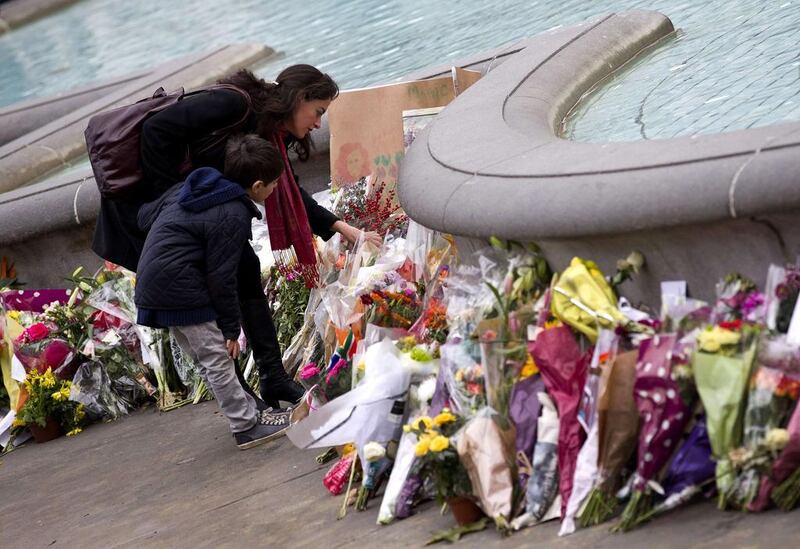LONDON // It was a cold February afternoon in central London and the man in the large overcoat and black Russian fur hat should really, as he said himself, “not be here”.
But he was. Frail he may have been, and recently retired from public life, but Nelson Mandela spoke for 10 minutes, wowing a crowd of about 22,000 in one of his last public appearances outside South Africa – the public launch in Trafalgar Square in 2005 of the campaign to Make Poverty History.
It was already a unique campaign. It joined an unprecedented number of aid agencies, charities and human-rights organisations in a collective struggle to combat global poverty by persuading rich countries to open their markets, expand development aid and forgive debts.
And later that year, some 225,000 people would march in support in Edinburgh where that year’s G8 summit was being held, the biggest demonstration in Scotland’s history.
It all had an effect. Leaders of the G8 on June 11 announced an agreement to forgive the entire US$40 billion (Dh147bn) in debt owed by the world’s 18 most impoverished countries.
But the campaign really gathered momentum on that afternoon of February 3, when Mandela lent his unique and considerable stature to the effort.
It was a crucial appearance, said Nick Dearden, the former director of the Jubilee Debt Campaign, which advocates for debt relief for poor countries, who was there that day working with the charity War on Want.
Make Poverty History already had the support of seasoned celebrity activists such as the rock stars Bob Geldorf and Bono, as well as the actors Brad Pitt and George Clooney. But there was a new focus away from aid and towards the structural causes of poverty, and the presence of an African statesman lent weight to the campaign.
The presence of Mandela – whom the BBC at the time called “the world’s most credible politician” – weighed even heavier, said Mr Dearden.
“He was a symbol of fighting against injustice, probably the major symbol of our generation. In some ways, Mandela’s struggle [against apartheid rule] in the 1960s, ’70s, ’80s, seemed extremely relevant to the global fight against economic injustice.”
It was a comparison Mandela drew himself. He thanked Britons for their support in the struggle against white minority rule in South Africa in the 1980s. Much of that support took the form of demonstrations right there in Trafalgar Square, he noted, still home to the South African embassy.
The fight against poverty was the same struggle, he said.
“Millions of people in the world’s poorest countries remain in prison, in chains and enslaved. They are trapped in the prison of poverty. It is time to set them free,” he said to huge cheers.
Lisbeth Holdoway was also there that day as a media coordinator for Oxfam, one of the world’s leading charities.
She was busy, but not too busy not to notice an “extraordinary atmosphere”.
Many people, she said, had turned up just because of Mandela, including her own two children, 17 and 15 at the time, who she had taken out of school in Oxford to be there.
“I didn’t want them to miss that moment. And for them it was a very significant day, it was very important to them.”
And it was them and their peers Mandela addressed in closing that that day, in a speech that is still quoted.
“Sometimes it falls upon a generation to be great. You can be that great generation.”
okarmi@thenational.ae





